-
 Bitcoin
Bitcoin $119,043.0040
1.29% -
 Ethereum
Ethereum $3,364.1624
9.11% -
 XRP
XRP $3.0604
5.59% -
 Tether USDt
Tether USDt $1.0004
0.03% -
 BNB
BNB $713.8994
3.57% -
 Solana
Solana $174.7967
7.99% -
 USDC
USDC $1.0000
0.00% -
 Dogecoin
Dogecoin $0.2161
10.54% -
 TRON
TRON $0.3087
2.55% -
 Cardano
Cardano $0.7739
5.11% -
 Hyperliquid
Hyperliquid $47.5122
0.66% -
 Stellar
Stellar $0.4617
3.50% -
 Sui
Sui $3.9953
-1.57% -
 Chainlink
Chainlink $16.8085
6.23% -
 Hedera
Hedera $0.2396
5.08% -
 Bitcoin Cash
Bitcoin Cash $503.4646
2.20% -
 Avalanche
Avalanche $22.8901
3.63% -
 Shiba Inu
Shiba Inu $0.0...01465
8.11% -
 UNUS SED LEO
UNUS SED LEO $8.8513
-0.78% -
 Toncoin
Toncoin $3.1822
4.82% -
 Litecoin
Litecoin $98.7701
3.10% -
 Polkadot
Polkadot $4.2122
4.94% -
 Monero
Monero $330.5225
-1.11% -
 Pepe
Pepe $0.0...01386
10.23% -
 Uniswap
Uniswap $9.1489
0.72% -
 Bitget Token
Bitget Token $4.7933
6.29% -
 Dai
Dai $1.0000
-0.01% -
 Ethena USDe
Ethena USDe $1.0009
0.03% -
 Aave
Aave $325.8264
0.74% -
 Bittensor
Bittensor $435.8997
1.71%
How to avoid phishing attacks on Ethereum wallet addresses?
Protect your Ethereum wallet by verifying website authenticity, using strong passwords & 2FA, employing hardware wallets, and avoiding suspicious emails & unsolicited offers. Regular software updates are crucial.
Mar 17, 2025 at 01:55 am
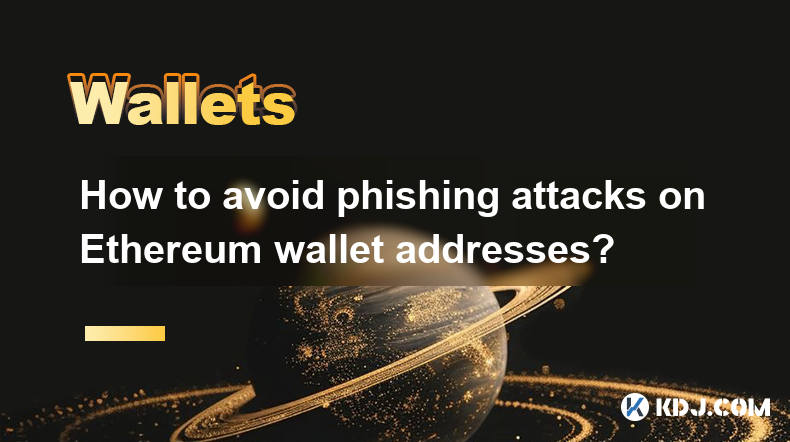
Key Points:
- Understanding phishing techniques targeting Ethereum wallets.
- Recognizing suspicious emails, websites, and messages.
- Implementing strong password practices and using hardware wallets.
- Verifying website authenticity and using reputable exchanges.
- Regularly updating software and being wary of unsolicited offers.
How to Avoid Phishing Attacks on Ethereum Wallet Addresses?
Ethereum, a leading blockchain platform, is a prime target for phishing attacks due to its popularity and the value of its native cryptocurrency, Ether (ETH). Phishing scams aim to trick users into revealing their private keys, seed phrases, or other sensitive information granting access to their Ethereum wallets. Understanding these scams and implementing preventative measures is crucial for safeguarding your funds.
Recognizing Phishing Attempts:
Phishing attacks often disguise themselves as legitimate communications. They might appear as emails from seemingly official sources like exchanges or wallet providers, containing links to fake websites. These websites mimic the real thing, but their purpose is to steal your login credentials. Be cautious of unexpected emails or messages requesting personal information.
Suspicious Links and Websites:
Never click on links from untrusted sources. Always manually type the address of a website, especially if it involves accessing your Ethereum wallet. Check the URL carefully for misspellings or suspicious characters. Legitimate websites usually have a secure connection (HTTPS), indicated by a padlock icon in your browser's address bar. Hovering over links before clicking can reveal the actual destination URL.
Strong Passwords and Security Practices:
Use strong, unique passwords for all your online accounts, including your Ethereum wallet. Avoid using easily guessable passwords or reusing passwords across multiple platforms. Consider using a password manager to securely store and manage your passwords. Enable two-factor authentication (2FA) whenever possible, adding an extra layer of security.
Hardware Wallets: A Robust Defense:
Hardware wallets offer a significantly higher level of security compared to software wallets. They store your private keys offline, making them virtually immune to phishing attacks targeting online wallets. Reputable hardware wallet manufacturers provide robust security features and regular software updates.
Verifying Website Authenticity:
Before entering any sensitive information, verify the authenticity of the website. Look for official logos, contact information, and secure connections. Check the website's reputation online by searching for reviews or complaints. If anything seems off, do not proceed.
Reputable Exchanges and Platforms:
Only use reputable and well-established cryptocurrency exchanges and platforms. Research the exchange thoroughly before using it. Avoid using lesser-known or unverified platforms, as these are often targets for phishing attacks. Be wary of exchanges that promise unrealistically high returns or offer suspicious deals.
Regular Software Updates:
Keep your operating system, web browser, and wallet software updated. Software updates often include security patches that protect against known vulnerabilities. Outdated software can leave your system susceptible to phishing attacks and malware.
Unsolicited Offers and Deals:
Be wary of unsolicited offers or deals related to your Ethereum wallet. Legitimate companies rarely contact users out of the blue to offer lucrative deals or promotions. If you receive an unsolicited offer, verify its legitimacy before taking any action. Contact the company directly through official channels.
Understanding Phishing Techniques:
Phishing attacks can employ various techniques, including spear phishing (targeted attacks), whaling (targeting high-profile individuals), and clone phishing (copying legitimate websites). These attacks often involve sophisticated social engineering tactics to manipulate users into revealing sensitive information.
Protecting Your Seed Phrase:
Your seed phrase is crucial for accessing your Ethereum wallet. Never share your seed phrase with anyone, including customer support representatives from legitimate companies. Store your seed phrase securely offline, away from electronic devices.
Reporting Phishing Attempts:
If you encounter a suspected phishing attempt, report it to the relevant authorities immediately. Contact the platform or exchange that was impersonated, and report the suspicious activity to the appropriate cybersecurity agencies.
Common Questions:
Q: What should I do if I think I've been a victim of a phishing attack?
A: Immediately change your passwords, contact your exchange or wallet provider, and monitor your account for unauthorized activity. Consider reporting the incident to law enforcement.
Q: How can I tell if a website is legitimate?
A: Check the URL for misspellings, look for a secure connection (HTTPS), and verify the website's reputation online through reviews and independent sources.
Q: Are hardware wallets completely safe from phishing attacks?
A: Hardware wallets offer significantly improved security, but they are not entirely immune. It's still essential to practice good security habits and avoid clicking on suspicious links.
Q: What is two-factor authentication (2FA), and why is it important?
A: 2FA adds an extra layer of security by requiring a second form of verification, such as a code from your phone, in addition to your password. This makes it much harder for phishers to gain access to your account.
Q: How often should I update my wallet software?
A: Update your wallet software as soon as updates are available. These updates often include critical security patches that protect against vulnerabilities.
Disclaimer:info@kdj.com
The information provided is not trading advice. kdj.com does not assume any responsibility for any investments made based on the information provided in this article. Cryptocurrencies are highly volatile and it is highly recommended that you invest with caution after thorough research!
If you believe that the content used on this website infringes your copyright, please contact us immediately (info@kdj.com) and we will delete it promptly.
- Biofuel Services Powering Fleet Sustainability & Fuel Delivery: A New Era
- 2025-07-17 06:30:13
- Bitcoin, Altcoins, and Market Dominance: Decoding the Crypto Landscape
- 2025-07-17 06:30:13
- BlockDAG's X1 App Surpasses 2 Million Users Amid Telegram Push and Crypto Market Buzz
- 2025-07-17 05:10:12
- Litecoin, Remittix, Presale: Navigating the Crypto Landscape in 2025
- 2025-07-17 05:30:12
- Bitcoin, Ethereum, Bulls Control: Riding the Crypto Wave
- 2025-07-17 04:50:13
- Dogecoin Price Prediction: Will DOGE Bark or Bite in the Altcoin Frenzy?
- 2025-07-17 05:30:13
Related knowledge
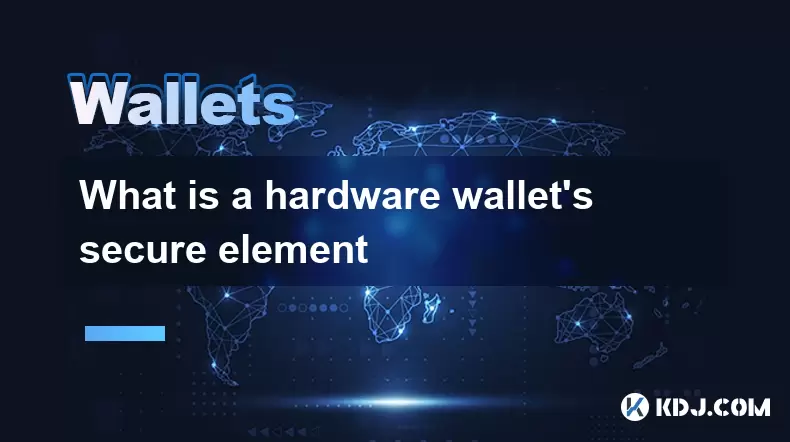
What is a hardware wallet's secure element
Jul 11,2025 at 10:14pm
What is a Hardware Wallet's Secure Element?A hardware wallet is one of the most secure ways to store cryptocurrencies. Unlike software wallets, which ...
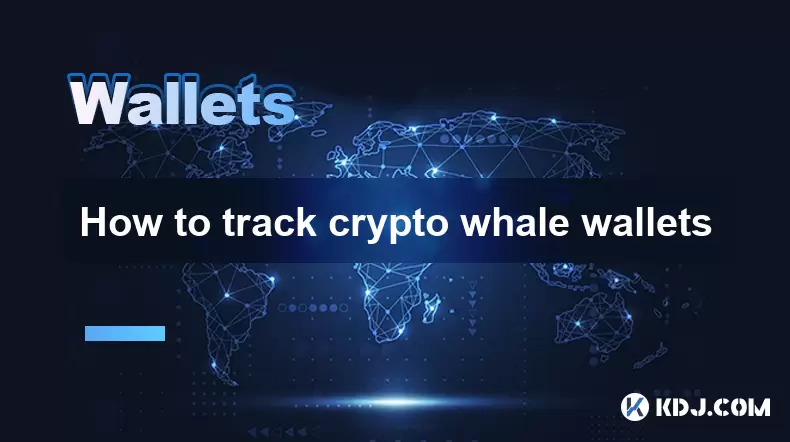
How to track crypto whale wallets
Jul 16,2025 at 10:00am
What Are Crypto Whale Wallets?Crypto whale wallets refer to large cryptocurrency holdings controlled by individuals or entities that have the potentia...
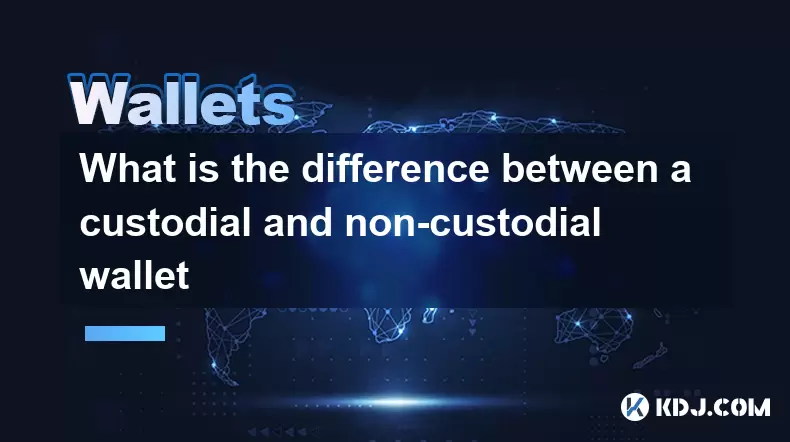
What is the difference between a custodial and non-custodial wallet
Jul 13,2025 at 03:21am
Understanding Wallet Types in CryptocurrencyIn the world of cryptocurrency, digital wallets play a crucial role in managing and securing assets. A wal...
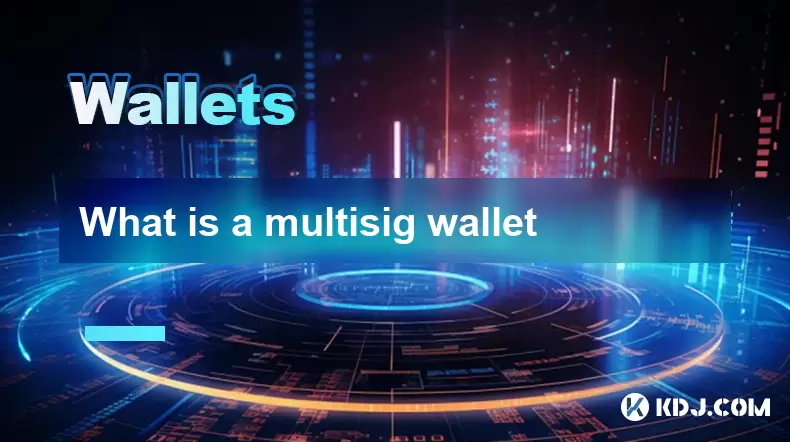
What is a multisig wallet
Jul 16,2025 at 01:42am
Understanding the Concept of a Multisig WalletA multisignature (multisig) wallet is a type of cryptocurrency wallet that requires more than one privat...
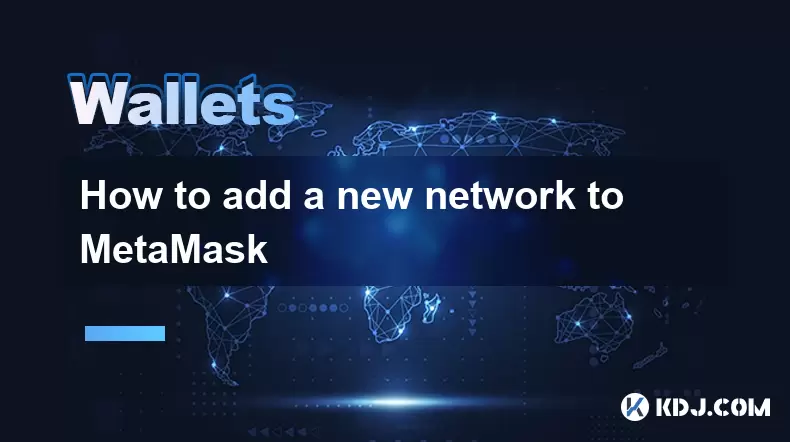
How to add a new network to MetaMask
Jul 11,2025 at 11:42pm
Understanding the Need to Add a New NetworkWhen using MetaMask, a popular Ethereum-based cryptocurrency wallet, users often need to interact with diff...
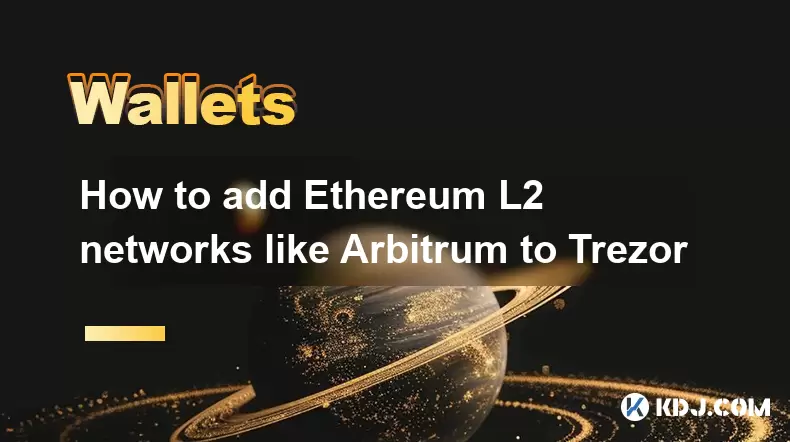
How to add Ethereum L2 networks like Arbitrum to Trezor
Jul 11,2025 at 12:36am
What Is Ethereum L2 and Why Add It to Trezor?Ethereum Layer 2 (L2) networks, such as Arbitrum, are scaling solutions designed to reduce congestion on ...

What is a hardware wallet's secure element
Jul 11,2025 at 10:14pm
What is a Hardware Wallet's Secure Element?A hardware wallet is one of the most secure ways to store cryptocurrencies. Unlike software wallets, which ...

How to track crypto whale wallets
Jul 16,2025 at 10:00am
What Are Crypto Whale Wallets?Crypto whale wallets refer to large cryptocurrency holdings controlled by individuals or entities that have the potentia...

What is the difference between a custodial and non-custodial wallet
Jul 13,2025 at 03:21am
Understanding Wallet Types in CryptocurrencyIn the world of cryptocurrency, digital wallets play a crucial role in managing and securing assets. A wal...

What is a multisig wallet
Jul 16,2025 at 01:42am
Understanding the Concept of a Multisig WalletA multisignature (multisig) wallet is a type of cryptocurrency wallet that requires more than one privat...

How to add a new network to MetaMask
Jul 11,2025 at 11:42pm
Understanding the Need to Add a New NetworkWhen using MetaMask, a popular Ethereum-based cryptocurrency wallet, users often need to interact with diff...

How to add Ethereum L2 networks like Arbitrum to Trezor
Jul 11,2025 at 12:36am
What Is Ethereum L2 and Why Add It to Trezor?Ethereum Layer 2 (L2) networks, such as Arbitrum, are scaling solutions designed to reduce congestion on ...
See all articles

























































































